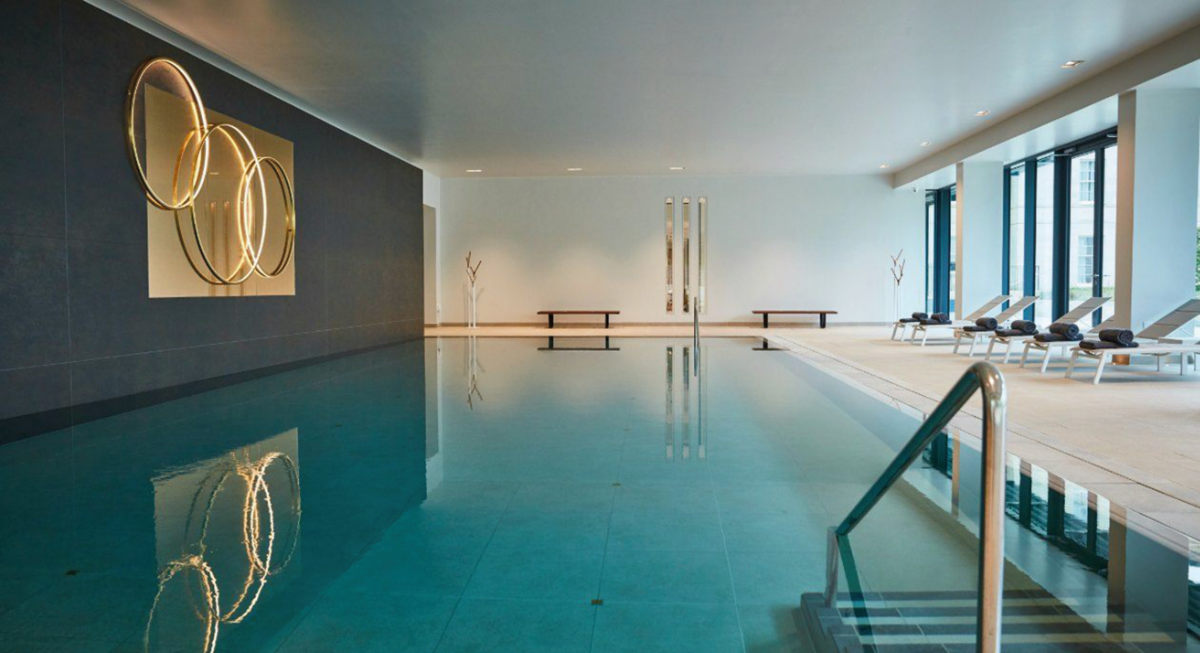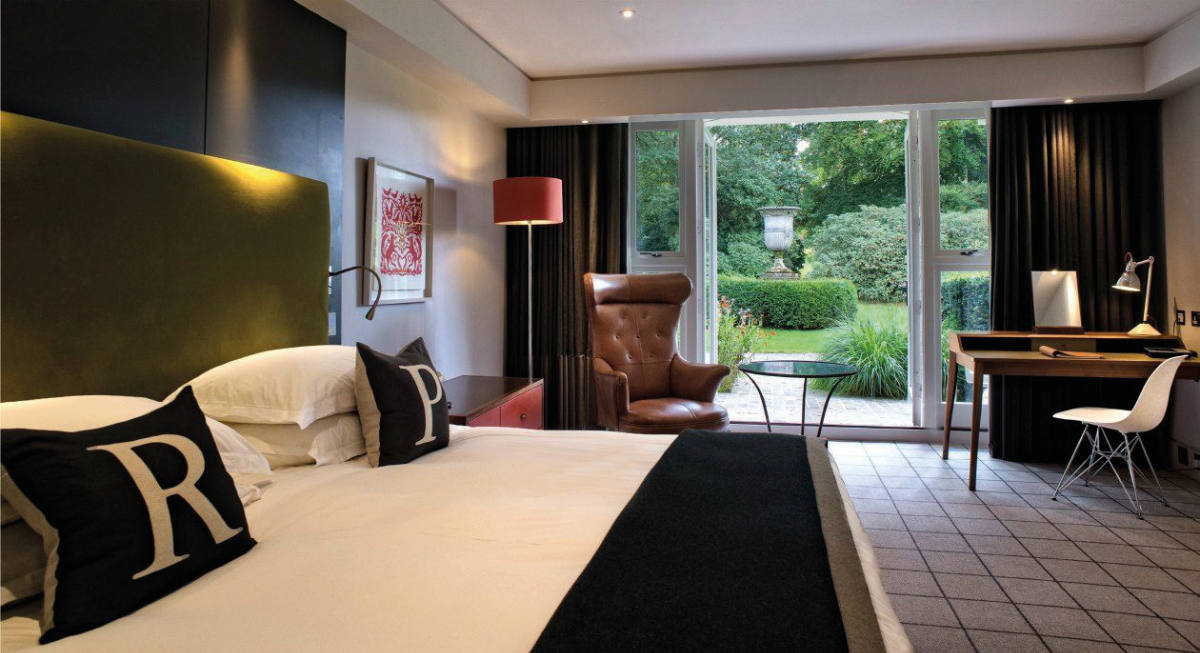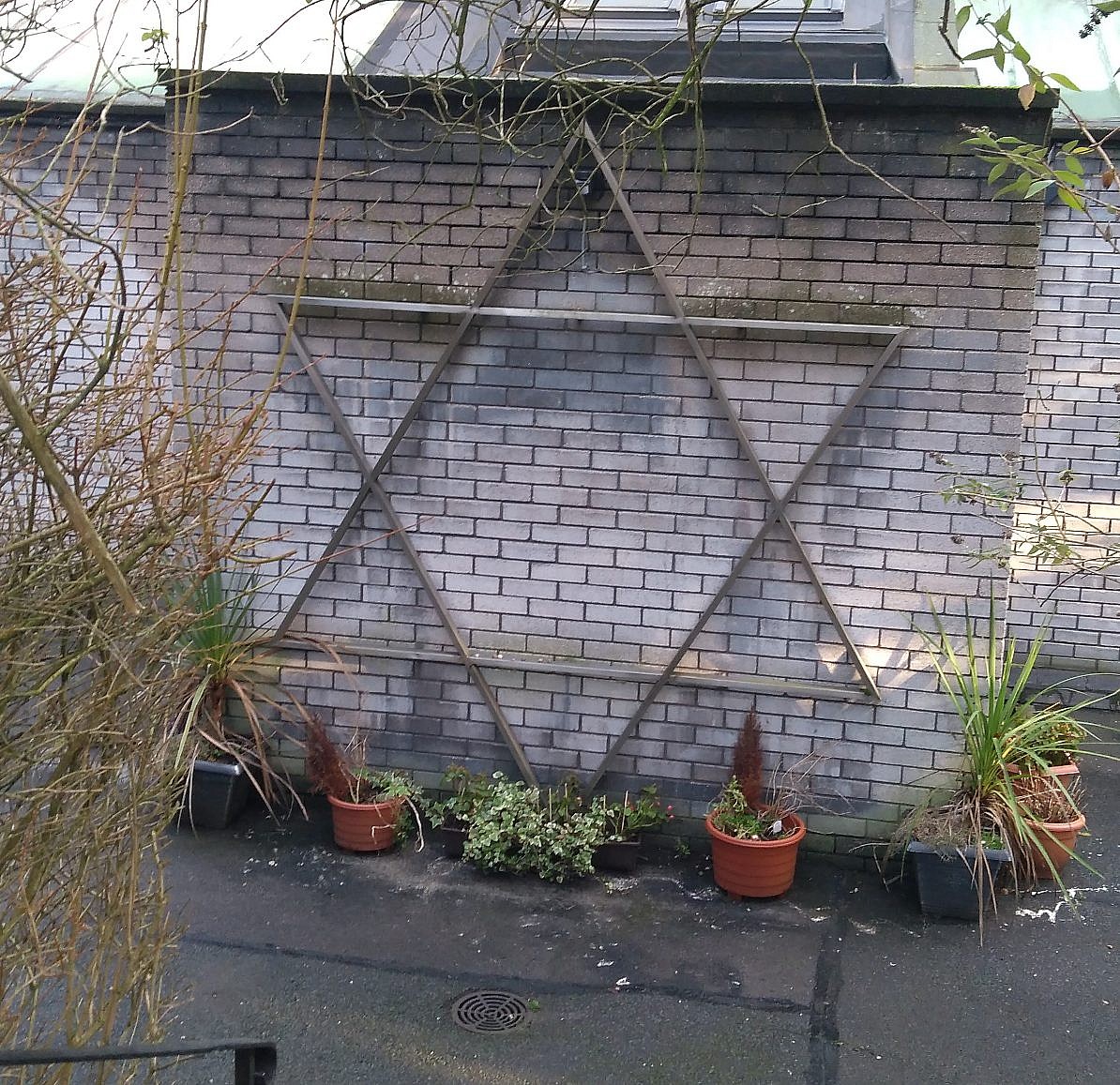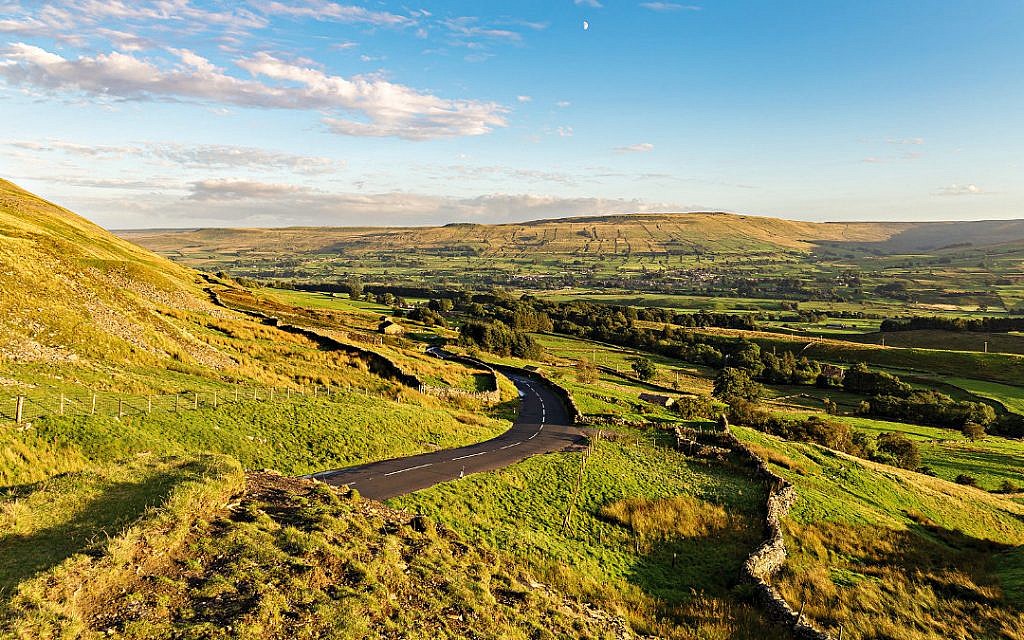Have a Dale of a time
Lucy Daltroff finds her happiness in Harrogate and discovers how the historic spa town provided a haven for Jewish child refugees during the Second World War
Harrogate has long been known for its elegance and refinement and has consistently been voted the ‘Happiest Place in England’. So, with husband and son in tow, I decided to go on a visit to experience this contentment at close hand.
Our first cause for satisfaction was the journey – driving up from London to North Yorkshire was a pleasant three-and-a-half hours (rather less than expected), while home for two nights was the Rudding Park Hotel, a country estate with large grounds that was once a stately home.
Situated three miles from the centre of town, it is now known for its fine dining, recently completed spa and its golf course.
Get The Jewish News Daily Edition by email and never miss our top stories Free Sign Up
While immersed in the beautifully warm outside pool (yes, it turned out to be quite possible in winter and in Yorkshire) I spoke to Louise from Leeds who was visiting with her husband. “We come here regularly as this is the best spa in the whole area and everyone in the hotels is so helpful,” she explained. I certainly shared her awe; we had never stayed in a place where our room had its own private luxurious hammam!

The sun shone as we explored Harrogate town – how could we expect anything less? – so we could literally see the attractive Victorian and Georgian architecture in the best light.
For two centuries, the waters of the town were a panacea for the aristocracy’s maladies and the springs were incorporated into a building, The Royal Pump Room, which is now also a museum.
It is definitely worth a visit, and regular tours take place, during which the smell of the sulphur waters waft up from the basement.
Their medicinal properties resulted in the authorities passing a law enshrining the right of anyone to be able to drink – and mandating an accessible outside tap.

However, eight years ago, the water was declared unsafe, so the tap now displays a warning notice. But apparently no one has fallen ill from it in 300 years, so plenty of people still imbibe the waters (it tastes of salty eggs).
A delightful collection of artefacts can also be found in the museum, with no real theme, apart from of Harrogate itself. There are Greek ceramics, clothing and exhibits about the use of the waters in town.
The Egyptology display includes the only wearable mask in the world of the god Anubis and an impressive collection of statues, carvings and jewellery.
Another extraordinary exhibit relates to Alexandra Feodorovna, wife of Nicholas II and the last tsarina of Russia, who was a frequent visitor to the spa and became the godmother to two local children. She regularly sent them gifts, including cutlery and cufflinks, some of which were made by Fabergé. Quaintly, the museum refers to her murder as “tragically ending the Tsarina’s connection to Harrogate”, which was perhaps a rather prosaic description of such a historic event.
Elsewhere, Harrogate boasts the attractive Valley Gardens and a whole range of excellent shopping opportunities, with department stores and normal town shops at the higher level and individual boutiques and antique emporiums further down the hill.
Also worth noting is Harrogate’s most famous building, Bettys Tea Rooms, as well as the sprawling landscape of the Yorkshire Dales beyond.
The existence of the Harrogate Jewish community is linked to the town becoming a fashionable spa and the subsequent expanse of the railways. Many members ran boarding houses for visitors and, in 1918, there were enough residents (22 families) to set up synagogue services over an antique shop.

Ten years later, the premises of a school church became available and stayed in use until the present synagogue was built in 1968.
Philip Morris, who has lived in Harrogate with his wife, Anne, for 59 years, kindly showed us around and explained that while work was going on, the Quakers generously bequeathed their meeting room for services, as it was never used by them on a Saturday.
Although plain on the outside, the synagogue inside is a handsome space that is well looked after. The coffers are quite healthy for a small community of just 172 members, owing to earlier bequests made by the Burton tailoring family, based in nearby Leeds.
The synagogue does not have its own rabbi, but instead has a rota system that is especially popular as it comes with the use of a flat. Services are held every Shabbat and there is capacity for 200, as well as an on-site kosher catering facility for simchas. Philip explained that a few months before, the Chief Rabbi had visited Harrogate to celebrate the community’s centenary.
The town has another Jewish connection. A villa, originally a parsonage, became a home for Jewish girl refugees aged 10 to 16, before and during the Second World War. Boys were already housed in Leeds. A contemporary described the scene: “It was awful to see the poor things arrive as if they were mere parcels, with numbers and labels attached and suffering from lack of food and shelter”. The first group arrived on 7 December 1938. They were given a kind reception by the town, as well as all types of support, which included English lessons.”
So even in those times they were made to feel welcome and happy, as becomes this lovely part of North Yorkshire.
Lucy’s travel tips!
Lucy stayed at Rudding Park, where rooms start from £207 per night, based on two people sharing. For the latest offers, visit ruddingpark.co.uk. To find out more about Harrogate’s synagogue, see harrogateshul.co.uk

Thank you for helping to make Jewish News the leading source of news and opinion for the UK Jewish community. Today we're asking for your invaluable help to continue putting our community first in everything we do.
For as little as £5 a month you can help sustain the vital work we do in celebrating and standing up for Jewish life in Britain.
Jewish News holds our community together and keeps us connected. Like a synagogue, it’s where people turn to feel part of something bigger. It also proudly shows the rest of Britain the vibrancy and rich culture of modern Jewish life.
You can make a quick and easy one-off or monthly contribution of £5, £10, £20 or any other sum you’re comfortable with.
100% of your donation will help us continue celebrating our community, in all its dynamic diversity...
Engaging
Being a community platform means so much more than producing a newspaper and website. One of our proudest roles is media partnering with our invaluable charities to amplify the outstanding work they do to help us all.
Celebrating
There’s no shortage of oys in the world but Jewish News takes every opportunity to celebrate the joys too, through projects like Night of Heroes, 40 Under 40 and other compelling countdowns that make the community kvell with pride.
Pioneering
In the first collaboration between media outlets from different faiths, Jewish News worked with British Muslim TV and Church Times to produce a list of young activists leading the way on interfaith understanding.
Campaigning
Royal Mail issued a stamp honouring Holocaust hero Sir Nicholas Winton after a Jewish News campaign attracted more than 100,000 backers. Jewish Newsalso produces special editions of the paper highlighting pressing issues including mental health and Holocaust remembrance.
Easy access
In an age when news is readily accessible, Jewish News provides high-quality content free online and offline, removing any financial barriers to connecting people.
Voice of our community to wider society
The Jewish News team regularly appears on TV, radio and on the pages of the national press to comment on stories about the Jewish community. Easy access to the paper on the streets of London also means Jewish News provides an invaluable window into the community for the country at large.
We hope you agree all this is worth preserving.
-
By Brigit Grant
-
By Laurent Vaughan - Senior Associate (Bishop & Sewell Solicitors)
-
By Laurent Vaughan - Senior Associate (Bishop & Sewell Solicitors)
-
By Laurent Vaughan - Senior Associate (Bishop & Sewell Solicitors)
-
By Laurent Vaughan - Senior Associate (Bishop & Sewell Solicitors)






















